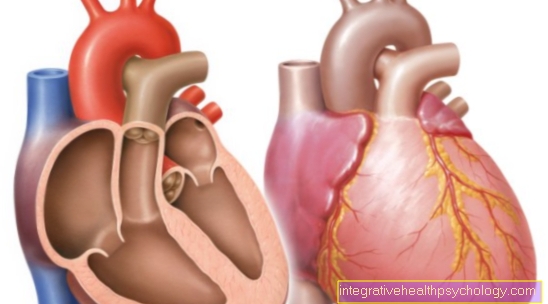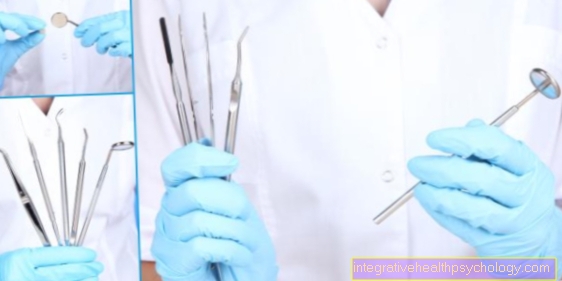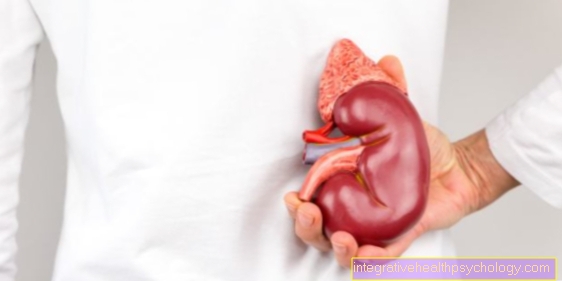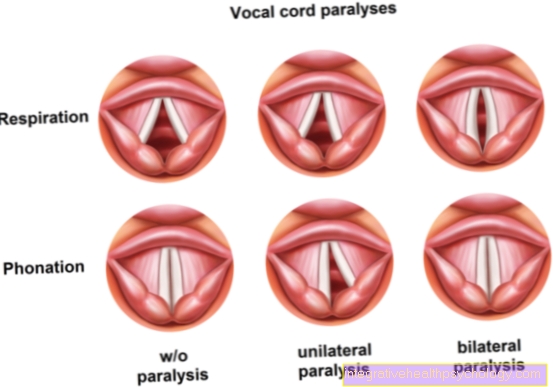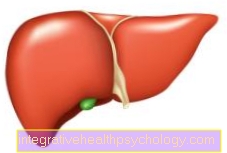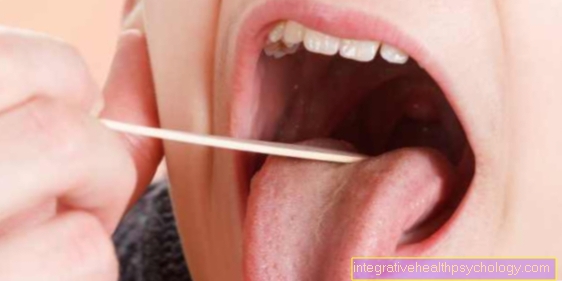Home remedies for bleeding gums
introduction
Often times, bleeding gums are just an acute problem. The cause may be bacteria, but the disease is not so well established that strong medication is needed. That is why the following home remedies help to combat the first at home. However, if the bleeding gums do not recover within the next 2 days, you should consult a dentist, as major problems could be the cause.
Read more on the topic: Causes of Bleeding Gums
Many medicinal herbs and home remedies contain oils. Oils are long-chain fatty acids and can bind well to bacteria. That is why essential oils all fight pathogens such as fungi, viruses and bacteria. Your activity is more or less strong. For this reason, some oils are more suitable for combating gum inflammation with bleeding gums.
Read more on the topic: What is the best way to stop bleeding gums?
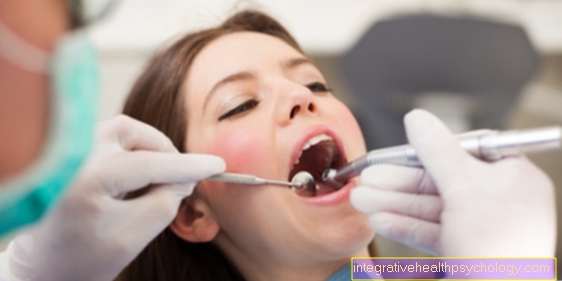
Sage tea
Sage tea has a disinfecting effect. Sage tea contains tannins and bitter substances that dissolve when poured. Tannins have a strengthening effect on the mucous membranes and compact the surface, making it more difficult for germs to enter the gums.
Read more on the topic: sage
The essential oils of sage contain substances such as cineole and camphene. They kill germs and are therefore anti-inflammatory. Sage is known for its astringent properties. This means that the gums contract and therefore bleed less. Sage also relieves stress, which can be a cause of bleeding gums. Sage tea also relieves pain in the neck area. If the throat is germ-free, this is a good prerequisite for combating other bacteria in the mouth. Otherwise, it is easy for bacteria to migrate from the throat to the mouth area and attack the gums there.
You might also be interested in this topic: Home remedies for gum inflammation
Camomile tea
The advantage of chamomile tea is that it is both antibacterial and antiviral. Only bacteria are involved in inflammation. However, if there is also an infection by viruses, the chamomile tea gives the body more power to fight the bacteria of the bleeding gums. In addition, chamomile is considered to be immune-stimulating and thus supports the fight.
Read more about: Effects of chamomile
Ingredients slow the growth of bacteria and fungi. Some substances from chamomile accelerate wound healing. Because bleeding gums have thousands of small cracks through which they bleed, it is an advantage if these can be closed with chamomile. The mucilage is primarily responsible for this. Since chamomile tea as an infusion contains only a small percentage of these healing substances, the effect is not as strong. Propar, a concentrate of bee putty resin, arnica and chamomile extracts, can help with heavy bleeding gums.
vitamin C
A study has shown that if there is a vitamin C deficiency, the tendency for bleeding gums is increased. The subjects were isolated for 90 days. Except for vitamin C, all nutrients were given in sufficient form. Over time, the plasma concentrations of vitamin C fell below 15 μmol / L. This is because they only received 5 mg of vitamin C per day instead of the recommended 1000 mg. This means that the vitamin C deficiency has to be very significant in order to trigger bleeding gums.
Read more on the topic: Bleeding gums due to deficiency
In this case, the bleeding gums do not come from periodontitis or bacteria, but from the instability of the vessels and tissues. Because of a vitamin C deficiency, some vitamin-dependent enzymes work more slowly. Scurvy also causes bleeding gums. However, the disease is no longer an issue in our society these days. But if you are still afraid of an illness, you can have your vitamin C budget determined to check.
Tincture of myrrh
The tincture is made from myrrh and alcohol. The ratio is 1 part of myrrh to 5 parts of 90% ethanol. The ethanol alone kills pathogens responsible for gingivitis. By applying the high percentage alcohol tincture, it is harder for bacteria to adhere to the surface of the gums. Gargling and rinsing the mouth also kills bacteria all around. One ingredient in tincture of myrrh has analgesic effects. The substance binds to opioid receptors and alleviates pain.
Read more on the topic: myrrh
It has also been proven that the substances inhibit the growth of bacteria. Myrrh itself contains special essential oils. The special thing about the oils is that they dissolve fats that are found on the bacterial membrane. As a result, they destroy the walls of bacteria and can influence the bacterium from the inside. They either inhibit the bacterium from multiplying, or they change the genetic make-up to such an extent that the bacterium dies. Another effect of myrrh is improved wound healing. With bleeding gums, the gums are destroyed by many small microcracks in the tissue. Myrrh indirectly promotes cell renewal and thus the healing of the vessels and the mucous membrane.
Find out more about the topic: Therapy for bleeding gums
Comfrey roots
The active ingredient allantoin contained in the comfrey roots promotes wound healing and tissue regeneration. As described above, the small cracks in the blood vessel and gums are healed more quickly. Other ingredients that are of pharmaceutical importance are choline, essential oils and tannins. The tannins have protein-binding properties and form a protective layer on the mucous membrane so that they stop the bleeding.
Read more on the topic: Comfrey
Actually, comfrey in the form of pastes and tinctures should only be used externally and should not come into contact with mucous membranes. Mainly because each plant contains different levels of toxic pyrrolizidine alkaloids. One safe way to use the active ingredients in comfrey is to consume them in the form of tea. Otherwise, a tincture should only be diluted with plenty of water and taken as a mouthwash. But it should not be swallowed.
Tea tree oil
The important substances in tea tree oil are terpinene and cineole. They are bactericidal, but terpinene can cause allergies. In addition, contact with eyes and mucous membranes should be avoided. In a strong dilution it can be used as a mouthwash and for gargling. To do this, put 5 drops of tea tree oil in a glass and dilute this with water. Anyone who has an oral irrigator can also pour the oil into the oral irrigator and spray it specifically on the sensitive areas. In the course of brushing your teeth, you can also put a drop on the toothpaste and use it to clean your teeth and gums. A steam bath is also suitable for calming the gums. It is important to inhale the hot steam through your mouth so that the ingredients reach the gums.
Fingerwort
Fingerweed is an astringent, which means it has an astringent effect. When vessels are contracted, the small cracks through which blood is supplied close. Goose fingerstick is therefore indirectly hemostatic. Astringents are also antibacterial and therefore anti-inflammatory. Tannins from the herb have a healing effect on the surface of the gums by compacting the surface with a thin, slimy film.
You might also be interested in this topic: Bleeding gums from stress






